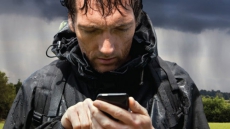Researchers from the University College London (UCL) found an innovative approach that reduces self-criticism and increases self-compassion and feelings of contentment in naturally self-critical individuals.
In the study, 43 healthy but self-critical women experienced a life-size virtual body substituting their own - giving a first person perspective of a virtual room through the eyes of the avatar.
The participants were all trained to express compassion towards a distressed virtual child while in their adult virtual body.
As they talked to the crying child, it appeared to listen and respond positively to the compassion.
After a few minutes, participants were then transferred to the virtual child body and from this perspective, they saw their original virtual adult body deliver their own compassionate words and gestures to them.
Women who experienced a first person perspective through the eyes of the virtual child felt soothed.
They felt safe and content and had increased self-compassion and a lower level of self-criticism.
"When adults are embodied in a virtual child body, this influences their perceptions of the world and themselves to become child-like. Here they experienced receiving compassion from their adult selves while embodied as a child," said Mel Slater, professor and co-author from the University of Barcelona in Spain.
Excessive self-criticism plays a prominent role in the development and persistence of many mental health problems including depression, the authors noted.
Virtual reality has previously been used to treat psychological disorders including phobias and post-traumatic stress disorder.
The study was published in the journal PLOS ONE.





